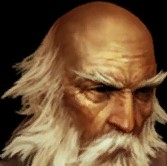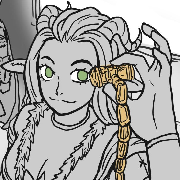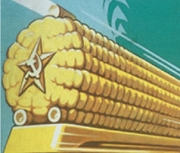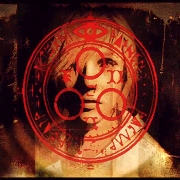|
What is the most powerful flying bug? This poll is closed. |
|||
|---|---|---|---|
| 🦋 |
|
15 | 3.71% |
| 🦇 |
|
115 | 28.47% |
| 🪰 |
|
12 | 2.97% |
| 🐦 |
|
67 | 16.58% |
| dragonfly |
|
94 | 23.27% |
| 🦟 |
|
14 | 3.47% |
| 🐝 |
|
87 | 21.53% |
| Total: | 404 votes | ||
|
Jesus, I became aware of this like 90 minutes ago and it went from "holy poo poo Russia might be collapsing" to "it was all theatrics" so fast that my head is spinning. I feel dumb for getting swept up in the hype but the world is so chaotic right now it can be hard not to.
|
|
|
|

|
| # ? May 27, 2024 07:58 |
|
really queer Christmas posted:The dumbest loving war *Chuckles While Smoking A Pipe* Aren't they all?
|
|
|
|
insane clown pussy posted:that's jeff daniels in character for the upcoming american history x sequel Russian History Z?
|
|
|
|
adebisi lives posted:All those dudes with the construction vehicles rolling their eyes and start filling the highways back in
|
|
|
|
Jazerus posted:simply tie the peasants to the land This is one of those areas where if you want to be a Marxist Historian, this is an opportunity to break new ground. A Marxist characterization of Late Antiquity and the early Middle Ages (the whole period from 300 to 800, broadly speaking) involves at least two sets of issues. First, what would a coherent Marxist characterization of the economic structure of Late Antiquity look like? In sharp contrast to Stalin’s theory of the final extinction of classical slavery in a "slave revolution", slavery was widespread and entrenched in the post-Roman West. It had certainly not disintegrated under the hammer blows of a revolution, much less one carried through by slaves. But does the persistence or revival of slavery mean that a slave mode of production dominated the class relationships of this period? Something like this was argued by Pierre Bonnassie from his seminal work on Catalonia. Bonnassie suggested that "Catalan society in the ninth and tenth centuries was still a slave society". Serfdom emerged from the violent and dramatic rupture, the crisis of public authority, that characterized the eleventh century, and in this classic, late-feudal sense, it was not a feature of the early Middle Ages. On the contrary, "The persistence of a slave economy constitutes one of the chief features of Visigothic Spain". However, no Marxist historians have gone as far as this, and if anything, they have done the opposite, projecting either serfdom or feudalism back into Late Antiquity. Thus, A. Barbero and M. Vigil refer to the "feudalization" of Spain under the Visigoths, arguing this at length, and, among British Marxists, Geoffrey de Ste Croix could even suggest that serfdom was the "predominant mode of production" in the later Roman Empire. This bears some resemblance to Rodney Hilton’s view that Late Antiquity had seen large landowners "creating the production relations characteristic of feudal society". "From at least as early as the crisis of the third century, town life had been contracting, and self-sufficient serf-worked estates had begun to dominate the social structure of the Empire". Hilton was clearly referring to the institution known to Roman historians as the colonate, but, at a deeper level, his views reflected a tradition of Late Roman historiography shaped less by anything Marx himself had written than by Max Weber’s famous lecture of 1896. The paradigm, which Weber himself did more to define than most, was one of widespread economic recession and a ruralization of the life of the empire. The identification of the colonate with serfdom (common to most historians of the early twentieth century; Ste Croix was its last great representative) was clearly what underpinned the half-baked conception of Late Antiquity as a precursor of feudalism. Today almost no serious scholar accepts this view, if only because feudalism itself is still so contested. So where does this leave us in terms of a general characterization of the late antique world? A more solid Marxist characterization can surely only come from the conjunction of new perspectives within the historiography itself and simultaneous attempts to map out the conceptual landscape in new ways (for example, John Haldon, Manuel Acién, Eduardo Manzano). The second set of issues relates to our notions of feudalism and of the transition from late antiquity to the early middle ages. How well does the theory of modes of production work for this transition? Do Marxists have a coherent understanding of the feudal mode of production? If a fully articulated feudal economy only emerged in the central or even later middle ages, what do we make of the early middle ages? What do we mean by serfdom and when did it evolve? There is scarcely an integrated Marxist position on these issues. For example, Ste Croix implied that there was no integral link between serfdom and feudalism and seemed to think that serfdom could form a mode of production sui generis (since it was, as he said, the "predominant mode of production" in late antiquity). In contrast, Hilton, with more sense of historical specificity, had always seen serfdom as central to feudalism. But Hilton also believed that serfdom should not be defined by labor services alone, whereas Marx himself had done precisely that, claiming in one passage that "Serf labour...has this in common with wage-labour, in respect of rent, that the latter is paid in labour, not in products, still less in money". Not only was serfdom, for Marx, the "broad basis of social production" in the middle ages but its pure form involved the exaction of labour services, a position that is clearly at odds with Hilton’s view that "labour rent was not an essential element in the feudal relations of production". In even greater contrast (to Marx), in Wickham’s recent book the lord’s lack of control of the labour-process is (almost?) built into his definition of feudalism, which emerges here in the more abstract structuralist guise of any system of "coercive rent-taking" that pits landlords on one side against peasants on the other. It was this kind of abstractionism, depleted of historical content, that Anderson had blasted in some of the best pages of Lineages, even if his own conception of the feudal mode was a haphazard conglomeration of features that failed to have any significant impact on the historiography. The best work by medievalists working in a left-wing tradition has been decidedly discontinuist, underlining the novelty of the middle ages. The paradox of Wickham’s conceptual choices is that, however one sees that novelty, it is not definable at the level of the mode of production, since his notion of the feudal mode is construed so loosely that it covers both the Roman Empire and (probably) the whole medieval world and much else besides! The tendency to dehistoricise categories such as "serfdom" (Ste Croix) and "feudalism" (Wickham, Haldon) in order to be able to extend their application to Antiquity is surely a retrograde one. It stems as much from the lack of a more sophisticated Marxist theory of the feudal mode as it does from any conception of late antiquity as a precursor of feudalism. A Background to the Late Empire In Roman history, the "late empire" generally refers to the period between the fourth and the seventh centuries, the fourth and early fifth if the focus is Western, since the western empire fell apart in the fifth, and the sixth and early seventh as well if we look at the East. The fourth century is thus the watershed that divides Roman from late Roman history. Yet the basic elements of the fourth-century empire were established in the third, with the sweeping reorganization of the army and the emergence of a new command-structure, on one side, and, on the other, the sustained expansion, throughout the late second and third centuries, of a network of provincial, mainly African, families who would later form the core of the Western aristocracy under Constantine (306-337). Reform of the army excluded senators from military command and signified a major break in the traditional pattern of upper-class dominance. If this was a democratization of the Roman army, as Lopuszański suggested in a seminal paper, it certainly paved the way for the evolution of a professionalized officer-corps and the consolidation of an esprit de corps in the higher ranks that dominated much of the political history of the late empire. By the fourth century, senators were marginal to the composition of the army leadership, which came, increasingly, to incorporate a strong Germanic component. The key result of all this was that, from the main part of the third century, emperors were drawn overwhelmingly from non-senatorial/military backgrounds. The politically relevant elite was not the senatorial class but a military elite whose upward mobility found renewed resonance in the civilian side of the administration, as bureaucracies were expanded and professionalized and a new value set on legal and related forms of expertise. The social fluidity of the late empire was the key to its sudden effervescence. The senate itself was transformed and expanded early in the fourth century and the equestrian order subsumed wholesale into the senatorial class, infusing administrative and business skills. The consolidation of the Western aristocracy meant, crucially, an adjustment with the state, the ability to maneuver and as far as possible dominate. By contrast, in the East, state and aristocracy were much more closely integrated, since the aristocracy was itself of bureaucratic origin and the bedrock of the state’s apparatus. These differences would become a major part of the story of why the Empire survived so spectacularly in the East when it fell to pieces in the West. The key innovation of the late empire that broke with centuries of tradition was Constantine’s monetary reform. Just as the military revolution of the third century was decisive in defining the "style" of the late empire, vesting state-power in the hands of the military, Constantine’s creation of a new gold-currency provided the pivotal foundation that sustained the expansion of the governing class as a whole (both senators, new and old, and bureaucracy). As one contemporary commented, the aristocratic elites of the fourth century accumulated vast quantities of gold, so that "the houses of the powerful were crammed full of it". In the West, the countryside scaled new peaks of activity as the owners of these vast hoards of money-capital expanded productive capacities and upgraded their fixed-capital investments – a process which is best documented, archaeologically, for the Spanish countryside, most spectacularly in the very rich fourth-century villas of the northern Meseta. To ensure efficiency, the state intervened to pin labor down to the large estates, contriving new definitions that were antithetical to the purism of classical law. In short, the fourth century dramatically reconfigured law, society, and economy in ways that were a disaster for the lower classes. For the Italian historian Santo Mazzarino, all this was a major part of the crisis of the western empire, in the sense that "the peasant masses felt themselves crushed under the weight of the new economy" and sought protection with the aristocracy against the state. "The small peasant-proprietors turned themselves into dediticii of the rich, or as it was called in Celtic vassi". "These", Mazzarino claimed, "are the first hints of the economic system of vassalage which marks the Middle Ages". To offset the crisis government unleashed a prolonged deflation which "in conditions of insufficient productivity brought the society nearer to a natural economy". "Thus", that is, with "vassalage" on one side and natural economy on the other, both rooted in the conditions of the late empire, "they set off toward the Middle Ages". While mostly sound to a Marxist, Mazzarino's position has some issues for scholars who have been educated after Peter Brown's development of the discipline of Late Antiquity in the UK in the 1960's, a tradition which produced Avril Cameron, AD Lee and Wickham. Reconciling Late Antiquity with Marxist theory is the as-yet unresolved gap in the historiography. This framing of the "transition", of the resilience of an empire undermined by social crisis, is conspicuously absent in Wickham’s book. Indeed, it will be striking to his colleagues in Italy that there is no reference to their great mentor Mazzarino, not even in the bibliography! Wickham charts a very different course, abandoning the speculative-looking constructions of the 1950s and its textual tools in favor of a wider range of sources and considerable emphasis on the archaeological work, late Roman and medieval, of the last two decades. For Mazzarino’s uncomplicated trajectory from late antique patrocinium to medieval vassalage, a model of almost appealing simplicity, Wickham substitutes a more involved and densely textured history – of landscapes, exchange networks, aristocracies and urbanism, and of the fragile autonomy of the peasantry, all moving in complex and uneven ways in a fragmenting world whose sinews were being remorselessly severed throughout this period. The collapse of the state and the fragmentation that flowed from it are the structuring principles of Wickham’s discussion of these diverse trajectories. Unlike Pirenne, who saw the disintegration of the western empire as a "political fact" with minimal implications for the continuity of "Romania", postponing the great catastrophe that ended it to the Islamic expansion of the later seventh century, Wickham ascribes momentous significance to the crisis of the state. In particular, the breakdown of taxation, by which he means taxation in kind, had major long-term impacts in the West: a crisis of the urban traditions of antiquity, with major changes in the scale and quality of urbanism, a general weakening and impoverishment of the aristocracy, and the slow but inexorable disintegration of the Mediterranean world-system. All of this happened unevenly, of course, and Wickham tracks the changes with a strong sense of their local peculiarities, mapping their real or hypothetical evolution by region and subregion, and constructing a transition model of considerable complexity. Frosted Flake has issued a correction as of 18:53 on Jun 24, 2023 |
|
|
|
Ramrod Hotshot posted:any rumors on the terms of the lukashenko deal? there's now supposed denials from prigozhin that any deal was reached, but i'd take everything coming out with a grain of salt considering that both sides have strong incentives to confuse the situation as much as possible
|
|
|
|
Ramrod Hotshot posted:any rumors on the terms of the lukashenko deal? tasty burgers and meat stories will be delivered to the frontlines by wagner's new delivery app
|
|
|
|
Frosted Flake posted:This is one of those areas where if you want to be a Marxist Historian, this is an opportunity to break new ground. didn't read
|
|
|
|
OctaMurk posted:bay of prigs
|
|
|
|
luka played the long game and came out on top. im ready to call Belarus “Russia” and the current RF “Chernarus”
|
|
|
|
it'd be funny if the chechans "didnt get the memo"
|
|
|
|
mlmp08 posted:Your posts are weird as hell man. Just try to enjoy the show. I’m sorry man, but this poo poo is 100% fake.
|
|
|
|
OctaMurk posted:bay of prigs
|
|
|
|
breathing aids posted:I’m sorry man, but this poo poo is 100% fake. ok
|
|
|
|
I'm already looking forward to the next time a military column is hauling rear end towards a capitol in what is certain to be a decisive moment of the war 3rd times the charm, baby
|
|
|
|
This poo poo will be forgotten about in 3 days.
|
|
|
|
what deal could you possibly make here
|
|
|
|
adebisi lives posted:All those dudes with the construction vehicles rolling their eyes and start filling the highways back in My man the tanks would chop up roads on good days, gonna be a lot of angry road workers
|
|
|
|
It would be really funny if it was as simple as "Lukashenko agreed to devote his 60k men to loving up Wagner if they kept moving forward" https://twitter.com/rybar_force/status/1672610013116788738?s=20 It would be morbidly amusing if this hissy fit resulted in enough territorial gain that Ukraine doesnt get cut loose
|
|
|
|
razorscooter posted:what deal could you possibly make here they wanted to get paid, same as it ever is
|
|
|
|
Frosted Flake posted:This is one of those areas where if you want to be a Marxist Historian, this is an opportunity to break new ground. wow
|
|
|
|
Frosted Flake posted:This is one of those areas where if you want to be a Marxist Historian, this is an opportunity to break new ground. wow for real?
|
|
|
|
razorscooter posted:what deal could you possibly make here assuming it's real and wagner's motivation is simply to secure an existence for the wagner race in future then the deal is don't nationalise us and we wont start shooting
|
|
|
|
how long will this content last us before the thread dies down again
|
|
|
|
razorscooter posted:what deal could you possibly make here seems like maybe prig never thought it would go that far and got his bluff called, maybe they agreed not to put him in jail or kill him
|
|
|
|
razorscooter posted:what deal could you possibly make here he could've maybe spun something out if he stuck to rostov and dug in his heels but he's got to know at this point he's a marked man, which makes me deeply suspicious of any supposed agreements coming out of it
|
|
|
|
Thank you everyone for attending the Prigozhin Stunt Show, please collect your belongings, and enjoy your day at Universal Studios.
|
|
|
|
tazjin posted:how long will this content last us before the thread dies down again Somebody has to pay for this mang. Probably Prigo.
|
|
|
|
Fat-Lip-Sum-41.mp3 posted:are you telling me Wagner just went for a loving drive A march of justice actually
|
|
|
|
https://twitter.com/Bored_Trade/status/1672663892890365955 lol
|
|
|
|
Vermain posted:there's now supposed denials from prigozhin that any deal was reached, but i'd take everything coming out with a grain of salt considering that both sides have strong incentives to confuse the situation as much as possible It would be really embarassing if prigo admitted that Belarus intimidated him into surrendering, so he's going to deny anything approaching that immediately lol
|
|
|
|
tazjin posted:how long will this content last us before the thread dies down again nafo fellas went from slava prigozhini to cyka prigozhini pretty quick
|
|
|
|
big prig's armored road trip
|
|
|
|
Didn’t even get far enough to poo poo on a desk smh
|
|
|
|
https://twitter.com/spectatorindex/status/1672662959481577472?s=20
|
|
|
|
lmao, definitely still mad.
|
|
|
|
e:fb
|
|
|
|
There's a pretty easy explanation for the drama play we've just witnessed: white boy summer gets the best of us lads
|
|
|
|
Sounds like this poo poo is very stupid and I was justified in not keeping up-to-date on this war
|
|
|
|

|
| # ? May 27, 2024 07:58 |
|
Neurolimal posted:There's a pretty easy explanation for the drama play we've just witnessed: white boy summer gets the best of us lads lol
|
|
|










































